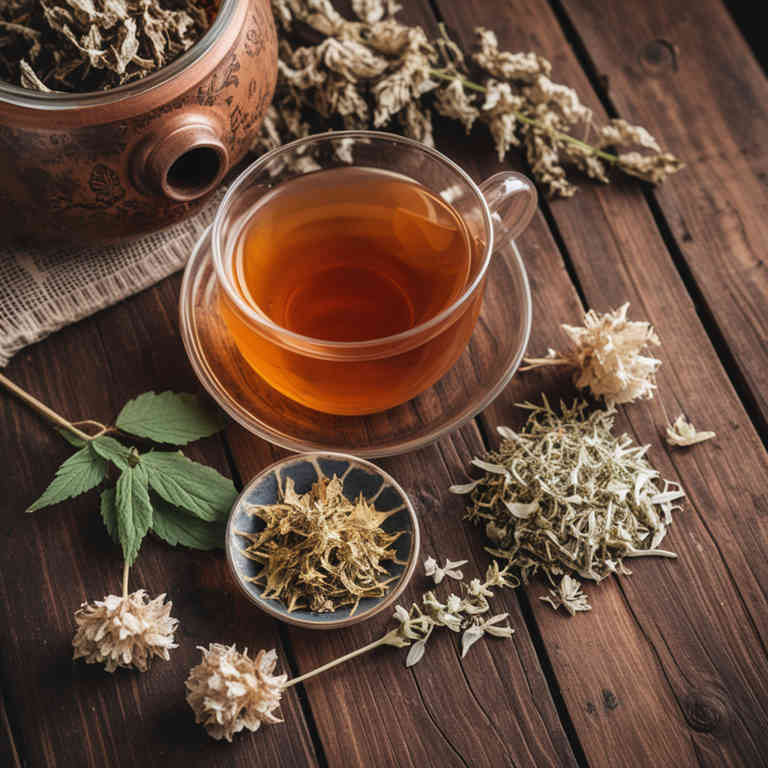Hydrastis canadensis tea for medicinal use

Hydrastis canadensis tea is a herbal preparation made from the dried roots of the goldenseal plant, which is native to North America.
It has been traditionally used in herbalism for its purported antimicrobial, anti-inflammatory, and digestive properties. The tea is often consumed to support gastrointestinal health and as a natural remedy for infections. It is also used in some traditional practices to aid in skin conditions and as a tonic for the respiratory system.
However, due to its potential for toxicity and regulatory restrictions, it should be used with caution and under professional guidance.
Uses
Hydrastis canadensis tea has been used to treat digestive issues, skin conditions, and respiratory ailments for centuries.
Historically, Indigenous peoples of North America utilized the plant, known as goldenseal, for its antimicrobial and anti-inflammatory properties. In traditional medicine, it was often prepared as a tea to support liver function and aid in detoxification. Modern uses include its application in herbal remedies for oral health and as a natural supplement to support immune function.
However, due to its potential for overuse and interactions with medications, it is advised to consult a healthcare professional before regular consumption.
Benefits
Hydrastis canadensis tea has health benefits such as supporting digestive health, promoting skin clarity, and enhancing immune function.
It is commonly used to alleviate symptoms of digestive disorders like ulcers and indigestion due to its antimicrobial and anti-inflammatory properties. The tea may also help in reducing inflammation and supporting liver function. Additionally, it is believed to have antioxidant effects that contribute to overall wellness.
However, it should be used with caution and under the guidance of a healthcare professional, as it can interact with certain medications.
Constituents
Hydrastis canadensis tea active constituents include berberine, hydrastine, canadine, and other alkaloids.
These compounds are known for their antimicrobial, anti-inflammatory, and digestive properties. Berberine, in particular, is recognized for its ability to support gut health and may help in managing conditions like irritable bowel syndrome. The tea is traditionally used to promote digestion and support the health of the gastrointestinal tract.
However, it should be used with caution due to potential side effects and interactions with certain medications.
Preparation
To make Hydrastis canadensis tea, start by gathering fresh or dried goldenseal root, which is the primary ingredient.
Rinse the root thoroughly and chop it into small pieces to increase the surface area for better extraction. Boil one cup of water and add the chopped goldenseal root, letting it steep for 10 to 15 minutes. Strain the liquid to remove the root pieces, and drink the tea warm, ideally once or twice a day.
This herbal preparation is known for its bitter taste and is traditionally used for digestive support and as a natural remedy for various ailments.
Side Effects
Hydrastis canadensis tea may lead to gastrointestinal discomfort, including nausea, vomiting, and diarrhea, due to its high concentration of alkaloids.
It can also cause increased heart rate and anxiety in some individuals, particularly at higher doses. Long-term use may lead to more severe side effects such as liver damage or interactions with certain medications. People with gastrointestinal conditions or those taking antidepressants should use this tea with caution.
It is important to consult a healthcare professional before using Hydrastis canadensis tea, especially for extended periods or in combination with other treatments.